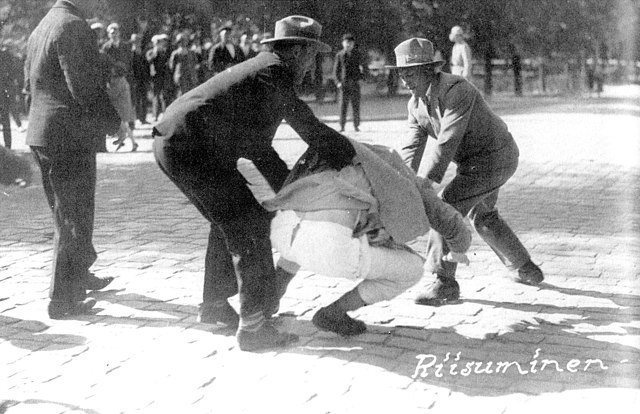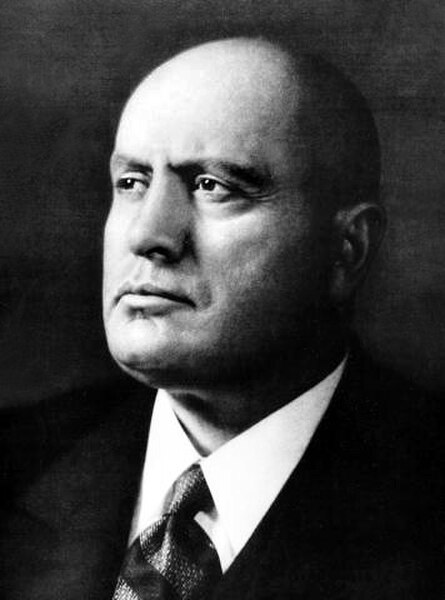Totalitarianism is a political system and a form of government that prohibits opposition political parties, disregards and outlaws the political claims of individual and group opposition to the state, and controls the public sphere and the private sphere of society. In the field of political science, totalitarianism is the extreme form of authoritarianism, wherein all socio-political power is held by a dictator, who also controls the national politics and the peoples of the nation with continual propaganda campaigns that are broadcast by state-controlled and by friendly private mass communications media.
Totalitarian dictator: Il Duce Benito Mussolini was supreme leader of Fascist Italy (1922–1943).
Anti-totalitarian: Hannah Arendt thwarted the totalitarian model Kremlinologists who sought to co-opt the thesis of The Origins of Totalitarianism (1951) as American anti–Communist propaganda that claimed that every Communist state was of the totalitarian model.
Anti-totalitarian: the American political scientist Zbigniew Brzezinski popularised combating Left-wing totalitarianism in U.S. foreign policy.
President Isaias Afwerki has ruled Eritrea as a totalitarian dictator since the country's independence in 1993.
Political repression is the act of a state entity controlling a citizenry by force for political reasons, particularly for the purpose of restricting or preventing the citizenry's ability to take part in the political life of a society, thereby reducing their standing among their fellow citizens. Repression tactics target the citizenry who are most likely to challenge the political ideology of the state in order for the government to remain in control. In autocracies, the use of political repression is to prevent anti-regime support and mobilization. It is often manifested through policies such as human rights violations, surveillance abuse, police brutality, imprisonment, involuntary settlement, stripping of citizen's rights, lustration, and violent action or terror such as the murder, summary executions, torture, forced disappearance, and other extrajudicial punishment of political activists, dissidents, or general population. Direct repression tactics are those targeting specific actors who become aware of the harm done to them while covert tactics rely on the threat of citizenry being caught. The effectiveness of the tactics differ: covert repression tactics cause dissidents to use less detectable opposition tactics while direct repression allows citizenry to witness and react to the repression. Political repression can also be reinforced by means outside of written policy, such as by public and private media ownership and by self-censorship within the public.

Members of the right-wing Lapua Movement assault a former Red Guard officer and the publisher of the communist newspaper at the Vaasa riot on June 4, 1930, in Vaasa, Finland.





